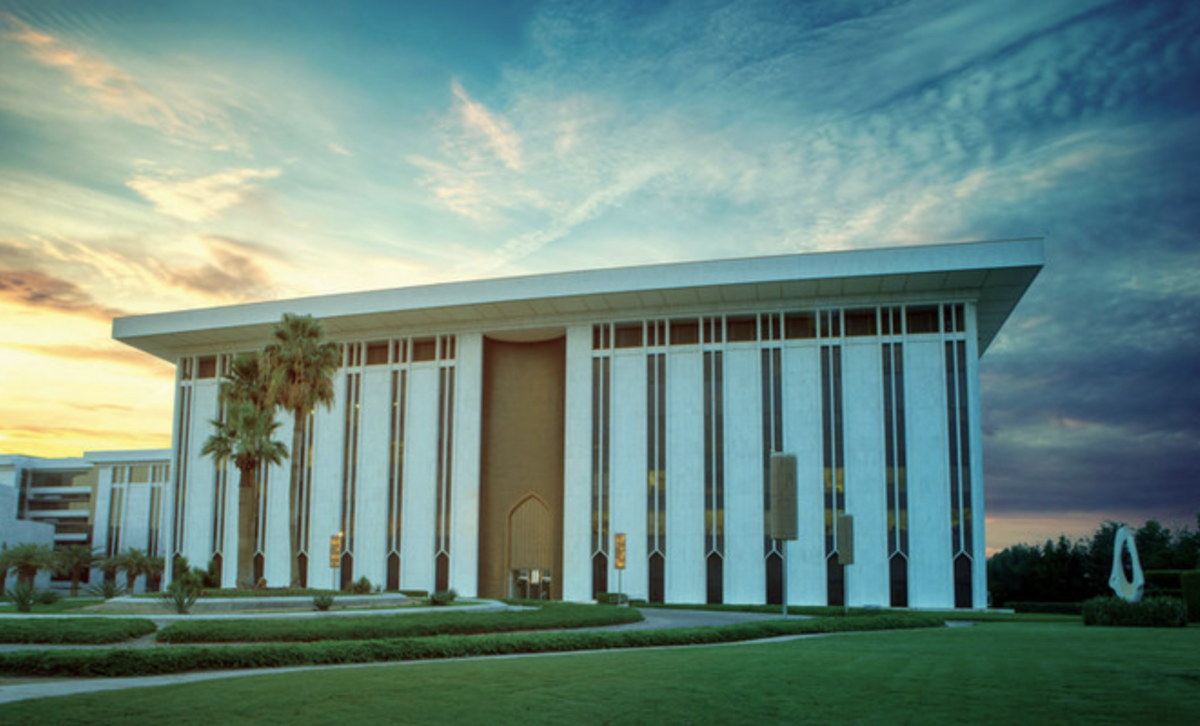RIYADH: The Industrial Development Fund provided SR12 billion ($3.19 billion) in financing to the Kingdom in 2024, boosting its global competitiveness, according to leading minister.
Speaking during a panel discussion at the Budget Forum 2024, Saudi Minister of Industry and Mineral Resources Bandar Alkhorayef highlighted the vital role of financing in driving industrial development.
“The Industrial Development Fund alone financed projects worth SR12 billion for 2024, but the total value of these projects exceeds SR60 billion,” Alkhorayef said.
He continued: “We have key indicators for the industrial sector: First, there are the licenses, which have seen significant growth. By the end of this year, more than 1,100 opportunities have been issued, and 900 factories have entered production. This is a very important key indicator.”
The minister went on to say: “The second key indicator is financing. Financing is a crucial driver for the industrial sector. The third key indicator is infrastructure. It is unimaginable to have a thriving industrial sector without properly developed industrial lands, primarily provided by the government.”
These key indicators are of great importance because they ensure the continued flow of investments into the sector, he added.
Alkhorayef also pointed to the Kingdom’s focus on promoting exports and supporting new sectors.
“Exports grew from SR458 billion in 2023 to SR528 billion this year, a 15 percent increase. This growth is largely driven by non-traditional sectors, showcasing the diversification of our economy beyond petrochemicals,” he said.
The minister highlighted the broader integration of industries, particularly between the industrial and mining sectors.
He praised Saudi Arabia’s streamlined approach to mining licenses, reducing wait times from eight to 10 years in advanced economies to just six months in the Kingdom, with plans to further reduce this to 90 days.
Alkhorayef emphasized the long-term vision of transforming Saudi Arabia into a hub for mining services and technology companies.
“Our investment in geological surveys has increased the estimated value of the Kingdom’s mineral wealth from $1.3 trillion to $2.5 trillion. This achievement positions the Kingdom as a future leader in mining and industrial innovation,” he added.
The industrial and logistics sectors have experienced significant momentum, with the government’s efforts driving a surge in private and foreign investment.
By aligning with Vision 2030, these initiatives aim to create a thriving, diversified economy that maximizes the nation’s geographic and resource advantages.
Transport sector achieves record growth and job creation
The Minister of Transport and Logistics Services Saleh Al-Jasser underscored the transport industry’s role as a key enabler of economic activity. He revealed that the sector achieved a 17 percent growth rate in just two years.
“International indicators also confirm this progress, such as the Logistics Performance Index, which saw an improvement of 17 ranks, as well as indicators for air connectivity, maritime connectivity, and road service quality,” Al-Jasser said.
He added: “Among other significant indicators is the reduction in fatalities and severe accidents on roads, achieved through an integrated national effort with other government entities. There is no doubt that progress has also been made across different modes of transport.”
The minister also highlighted that Saudi Arabia’s aviation sector is undergoing significant improvements, with a 50 percent increase in the number of international and domestic destinations connected to the Kingdom compared to pre-pandemic levels.
This reflects the sector’s rapid growth and its role in enhancing connectivity and economic activity.
A key goal of Vision 2030 is to create jobs and provide dignified employment opportunities for citizens.
“Saudi Arabia’s transport sector is at the core of our economic diversification efforts, providing critical infrastructure for all other industries,” Al-Jasser said.
He continued: “Investments exceeding SR447 billion have been made in the sector since the launch of the strategy. This includes more than 300 new aircraft ordered by national airlines, the highest in the Kingdom’s history, alongside significant expansions in logistics zones, maritime infrastructure, and other key areas.”
Al-Jasser highlighted the sector’s role in creating jobs, with 122,000 new employment opportunities generated by the third quarter of this year compared to the same period in 2023.
Additionally, women’s participation in transport has risen to 29 percent, a notable increase in a traditionally male-dominated field.
“The focus on developing local content has been equally impactful,” he emphasized. “The transport system has increased local content from 39 percent to 50 percent, putting us on track to achieve our Vision 2030 target of 60 percent.”
During the same session, the Minister of Communications and Information Technology Abdullah Al-Swaha highlighted Saudi Arabia’s rapid progress in the technology sector, attributing this success to investments in artificial intelligence-native companies and digital transformation.
“Today, companies like Mozn and Amplify are leading the charge in AI and innovative solutions. The Kingdom is positioning itself as a global powerhouse for tech-driven growth,” Al-Swaha said.
He continued: “The next phase will focus on technology manufacturing and exports. With the support of His Royal Highness the Crown Prince, we will further strengthen our National Program for Technology Development to ensure Saudi Arabia’s technological sovereignty and prosperity.”
Al-Swaha emphasized the Kingdom’s commitment to leveraging resources and infrastructure to build a globally competitive tech economy.
“This is a clear message to all tech professionals: we are ready to lead,” he concluded.


































